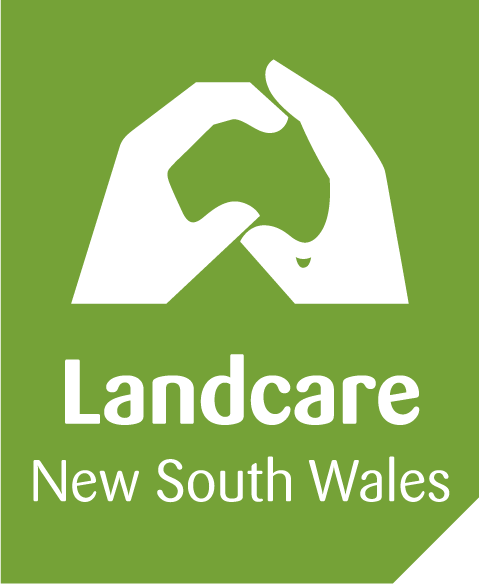Event Type
Landcare Region
BCT Region
Workshop 3: Biodiversity Extravaganza -
Join us at Bulga Soldiers Memorial Hall to learn about the wonderful wildlife that depends upon healthy, functioning ecosystems in the Elands region. We will hear about the unique biodiversity values found in the Comboyne-Killabakh escarpment from Mathew Bell - Senior Ecologist at MidCoast Council. Dr. Gilad Bino (University of NSW) will join us electronically to share his research into platypus populations of the Dingo Creek Catchment, impacts of wildfire on this wonderful monotreme, and how we can detect it in the field with new technologies, such as eDNA. Jesse Gollan (Biodiversity Conservation Trust) will give an overview of the private land conservation options available for landholders, outlining the benefits and support provided by these agreements.
We will spend the afternoon at the Oxygen Farm, one of the original private land conservation properties in the area and learn about the benefits of conserving, restoring and monitoring biodiversity on private land. You will have the opportunity to network with other landholders in the Elands area.
Morning tea and a light lunch will be provided.
This event is possible thanks to the shared work of the NSW Biodiversity Conservation Trust and Landcare NSW under the Private Land Conservation Matters project.
This event is free to all landholders in the MidCoast 2 Tops Landcare network and clients of the Biodiversity Conservation Trust. MC2T Landcare reserves the right to prioritise our members, BCT clients and local landholders, in the event of capacity ticket sales.
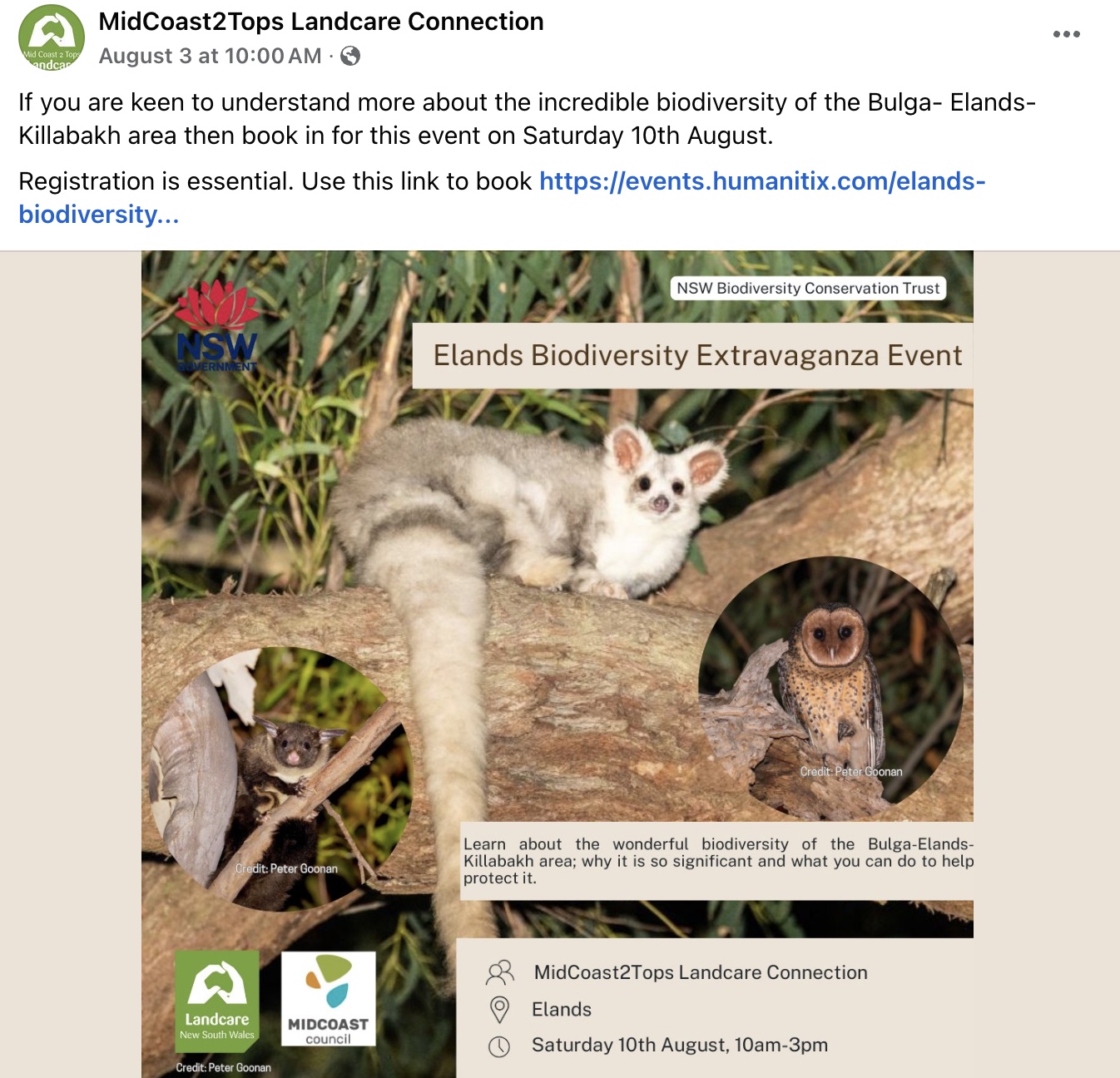
Event Topics
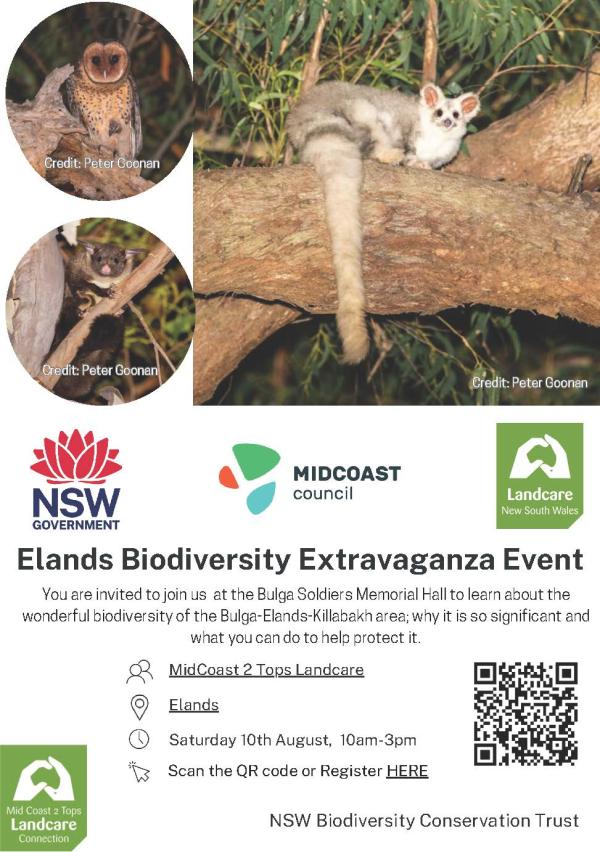
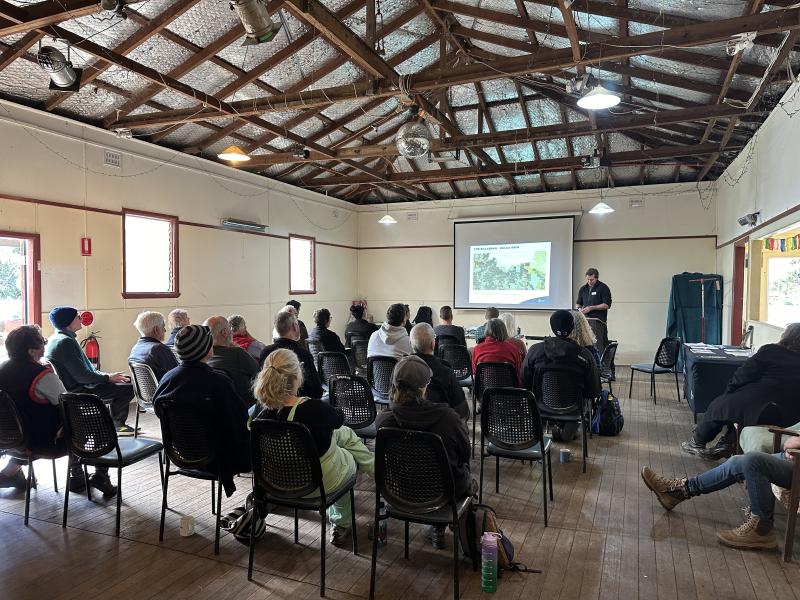
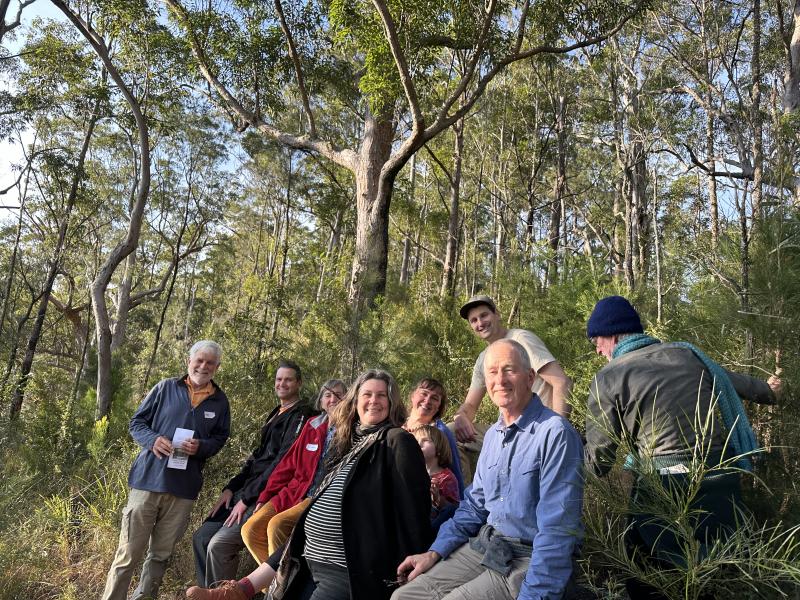
Event Outcomes
Growth in learning measure (Scale 1 - 100)
Attendee Feedback
What did you like about the event?
1. Diversity and Depth of Topics: Attendees highlighted the mix of topics and found the presentations to be comprehensive, informative, and diverse. The event covered both challenges and opportunities, providing a balanced view that inspired attendees.
2. Quality of Presenters: The knowledgeable and well-prepared presenters, including notable speakers like Mat Bell and Jesse, received high praise. The content was up-to-date and fascinating, delivered by experts who facilitated meaningful Q&A sessions.
3. Organization and Structure: The event's organization was commended, with clear, structured sessions that made complex topics accessible. The thoughtful planning and background information helped participants engage with the material effectively.
4. Venue and Accessibilit: Held in Elands, the event was conveniently located for local attendees, minimizing travel. The venue was appreciated, adding to the overall positive experience.
5. Connection and Networking: Attendees valued the opportunity to connect with other landholders and discuss shared interests, fostering a sense of community and collective hope.
6. Regional and Historical Focus: The information on local biodiversity, current initiatives in the Manning region, and historical insights into conservation agreements in the area enriched the attendees' understanding of their community's conservation efforts.
Overall, the event was well-received, with attendees leaving informed, inspired, and connected to both the subject matter and each other.
What do you want to learn next?
For future events, attendees expressed interest in learning more about the following topics:
1. Community Networking and Collaboration: There is a strong desire for enhanced social networking opportunities within the community, potentially facilitated by organizations like MC2T Landcare. Attendees would like strategies for strengthening community bonds and sharing resources.
2. Indigenous Burning Practices: Participants are keen to learn about strategic indigenous burning techniques, reflecting an interest in incorporating traditional ecological knowledge into land management practices.
3. Riparian Zone Restoration: The restoration and management of riparian zones is a key area of interest, suggesting a focus on protecting waterways and surrounding ecosystems.
4.Species Research and Information: Attendees expressed interest in gaining more information on local species, including the latest research findings and best practices for species conservation.
5. Updates on Existing Programs: They want to see updates on the progress of programs discussed at the field day, including data outcomes, successes, and challenges like staffing issues. A continuous update on the impact of these programs would help attendees stay engaged and informed.
6. Small Acreage Management: Some attendees would like guidance on conservation practices tailored to small acreage properties or rural residential areas, exploring what more can be done at this scale.
7. Access to eDNA Testing for Waterways: There’s an interest in learning how to access environmental DNA (eDNA) testing for monitoring biodiversity in local waterways, especially for those in Voluntary Conservation Agreements (VCA).
8. Stewardship Agreements: Finally, there is curiosity around stewardship agreements, likely involving guidance on entering and managing such agreements to protect and enhance natural assets on private land.
These interests reflect a growing engagement with both practical conservation methods and community-based approaches to land care and biodiversity protection.
